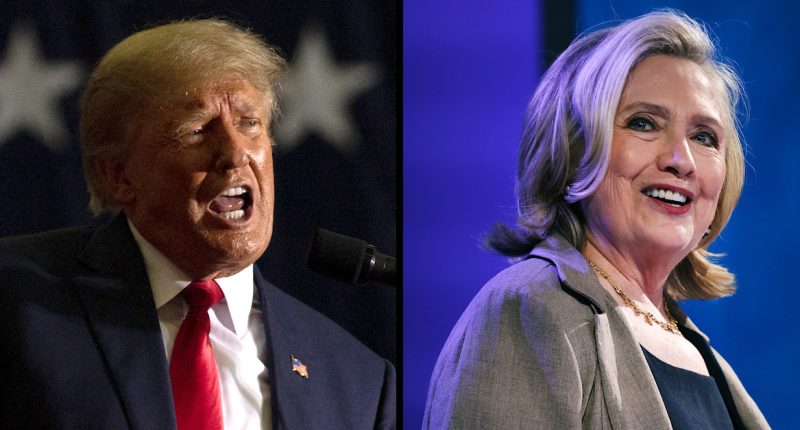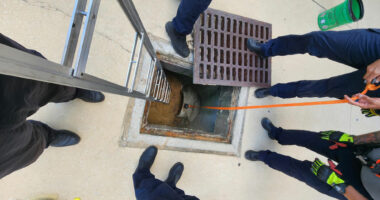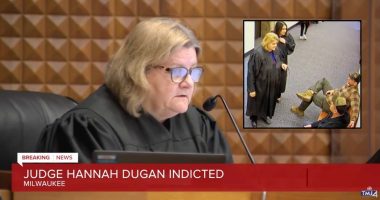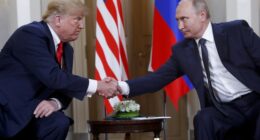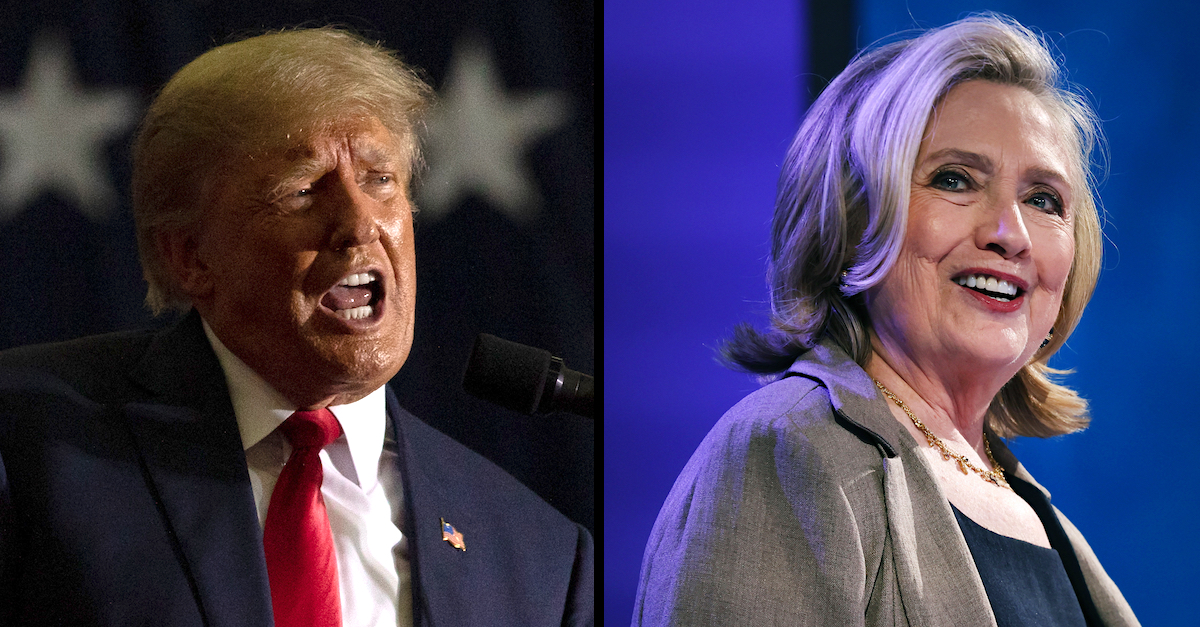
Left: Donald Trump at a rally on Oct. 1, 2022, in Michigan (Emily Elconin/Getty Images). Right: Hillary Clinton on Sept. 19, 2022, at an event in New York City (Spencer Platt/Getty Images).
A federal judge expressed skepticism regarding the constitutionality of Donald Trump’s executive order targeting the Hillary Clinton-linked law firm Perkins Coie during a hearing in Washington, D.C., on Wednesday before ultimately ordering a temporary block on the measure. The decision was an early victory for Perkins Coie as the president continued to escalate attacks on law firms for representing clients he perceived as his political enemies.
U.S. District Judge Beryl Howell granted the firm’s request for a temporary restraining order blocking Trump’s order, which sought to suspend security clearances for Perkins Coie employees, bar them from accessing government buildings, prohibit meetings with federal employees, and terminate any contracts the firm may have had with the federal government.
“The retaliatory nature of Executive Order 14230 is clear from its face,” Howell said during discussions dissecting the specifics of Trump’s order. “This language makes clear the executive order is a means of retaliating against Perkins Coie for representing individual clients who are the president’s political opponents or who the president does not like.”
The hearing came only one day after Perkins Coie filed its complaint in federal court asserting that Trump’s order was “an affront to the Constitution and our adversarial system of justice.”
“Its plain purpose is to bully those who advocate points of view that the President perceives as adverse to the views of his Administration, whether those views are presented on behalf of paying or pro bono clients,” the complaint stated.
During the hearing, Perkins Coie was represented by attorney Dane Butswinkas of the firm Williams & Connolly LLP. Butswinkas argued that the order was nothing more than Trump seeking retribution on Perkins Coie in an effort to destroy their business.
